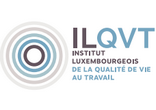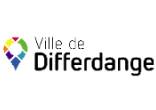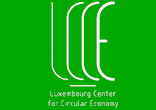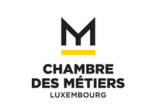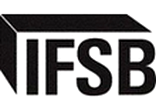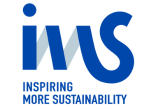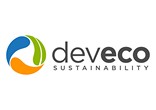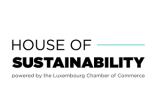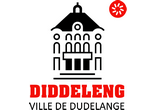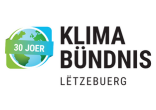
« Il est temps d’investir dans la nature »
En amont de la 15e Conférence des Parties (COP15) à la Convention sur la diversité biologique (CDB) qui démarre ce 5 décembre à Montréal, des experts internationaux ont discuté des principaux dilemmes auxquels les décideurs devront apporter des solutions concrètes.
La conférence de l’ONU sur la biodiversité démarre ce 5 décembre à Montréal et rassemblera des gouvernements du monde entier. Afin de s’y préparer, décideurs et experts de la biodiversité et de la finance se sont donné rendez-vous le 29 novembre pour le Biodiversity Finance Digital Forum : Investing in People and Nature. Un événement organisé par le Global Landscapes Forum sous la bannière de la plateforme Luxembourg - GFL Finance for Nature.
L’événement a été introduit par André Weidenhaupt, premier conseiller de gouvernement au ministère de l’Environnement, du Climat et du Développement durable. Il explique : « Ce forum numérique sur l’investissement dans la nature et les personnes opère comme un pont entre la COP27 sur le Climat et la COP15 Convention on Biological Diversity (CBD) » qui se tient jusqu’à 19 décembre au Canada. Parmi les sujets de ce forum : la garantie d’avoir des projets inclusifs pour la biodiversité, la reconnaissance des autochtones et des communautés locales (‘Indigenous Peoples and Local Communities’) et ce dans l’intérêt de défendre la diversité biologique mondiale.
Parmi les éléments discutés par les experts se trouvent la nécessité de tripler le financement des solutions basées sur la nature, actuellement établi à 133 milliards de dollars annuels, ainsi que le besoin d’investir 4.100 milliards de dollars pour atteindre les objectifs 2050 pour le climat, la biodiversité et la dégradation des sols. Les experts attendent donc d’importants engagements de la part des décideurs rassemblés à Montréal.
« Il n’y a qu’un seul moyen d’arrêter la perte de biodiversité mondiale. Nous devons veiller à ce que la nature soit correctement valorisée dans toutes les économies. Cela nécessite un leadership politique audacieux et des politiques de transformation. » Carlos Manuel Rodriguez, PDG et président du Fonds pour l’environnement mondial
.
L’intervention de M. André Weidenhaupt et le forum complet sont à visionner ici :
Ci-dessous, le communiqué de presse du Global Landscapes Forum, en anglais.
***
As sixth mass extinction accelerates, time to invest in nature
The Earth is undergoing a mass extinction for the first time since the dinosaurs died out 66 million years ago.
As species go extinct faster than ever before in human history, it’s crucial that governments, businesses and financiers step up to the challenge by investing in the planet, said speakers at the Biodiversity Finance Digital Forum : Investing in People and Nature, hosted by the Global Landscapes Forum (GLF) under the banner of the Luxembourg–GLF Finance for Nature Platform.
Held online on 29 November 2022, the Digital Forum addressed several key topics related to sustainable finance that will be discussed at the 15th Conference of the Parties (COP15) to the Convention on Biological Diversity (CBD) in Montreal, Canada, from 5–19 December.
“The current funding for nature-based solutions is USD 133 billion,” said Adrian Leitoro, Co-founder of Nature and People as One and 2022 GLF Restoration Steward. “We need to triple that. We need every potential solution to work towards nature-based solutions for biodiversity conservation.”
Experts have estimated that an additional USD 103 billion to USD 711 billion per year will be needed to protect 30% of the Earth’s land and oceans by 2030. Moreover, humanity will need to invest an extra USD 4.1 trillion to meet climate, biodiversity and land degradation targets by 2050.
Once raised, these funds must then be invested in local communities, who play a vital role in protecting their landscapes if given the right incentives. These investments can also help build sustainable livelihoods for communities and marginalized groups such as women and Indigenous Peoples, contributing to the creation of a stewardship economy.
“Seventy percent of the world’s poor live in rural areas and depend directly on biodiversity for their survival and wellbeing,” said Annabel Trinidad, a Technical Advisor with the Biodiversity Finance (BIOFIN) Initiative under the United Nations Development Programme. “Communities can be the first line of defense against activities that harm biodiversity.”
“We cannot go forward without including women and Indigenous Peoples, who are our forefront players in this endeavor,” added Ana Orozco, a Program Manager with BIOFIN in Costa Rica. “Women are not usually involved in restoration activities like forest fighting and communal water management, which are traditionally reserved for men.”
The world’s eyes now turn to policymakers as they gather in Montreal to hopefully enshrine these principles in new global biodiversity targets under the post-2020 Global Biodiversity Framework.
“There is only one way to stop global biodiversity loss,” said Carlos Manuel Rodriguez, CEO and Chairperson of the Global Environment Facility. “We need to ensure nature is appropriately valued in all economies. This requires bold political leadership and transformational policies.”
The GLF also launched the 2023 edition of its Restoration Stewards program, which provides funding, mentorship and training to deepen the impact of six youth-led restoration projects around the world each year.
About the Luxembourg–GLF Finance for Nature Platform
The Luxembourg–GLF Finance for Nature Platform is a partnership between the Government of the Grand Duchy of Luxembourg and the Global Landscapes Forum to mainstream investments for sustainable land use and climate. It aims to share knowledge on existing innovations and continuously build relevant (new) solutions, enhance mainstreaming of sustainable finance for nature-based solutions and catalyze private sector engagement in sustainable land use financing. Learn more here.
About the GLF
The Global Landscapes Forum (GLF) is the world’s largest knowledge-led platform on integrated land use, connecting people with a shared vision to create productive, profitable, equitable & resilient landscapes. It is led by the Center for International Forestry Research-World Agroforestry Centre (CIFOR–ICRAF), in collaboration with its co-founders UNEP and the World Bank, and its charter members. Learn more at www.globallandscapesforum.org.

